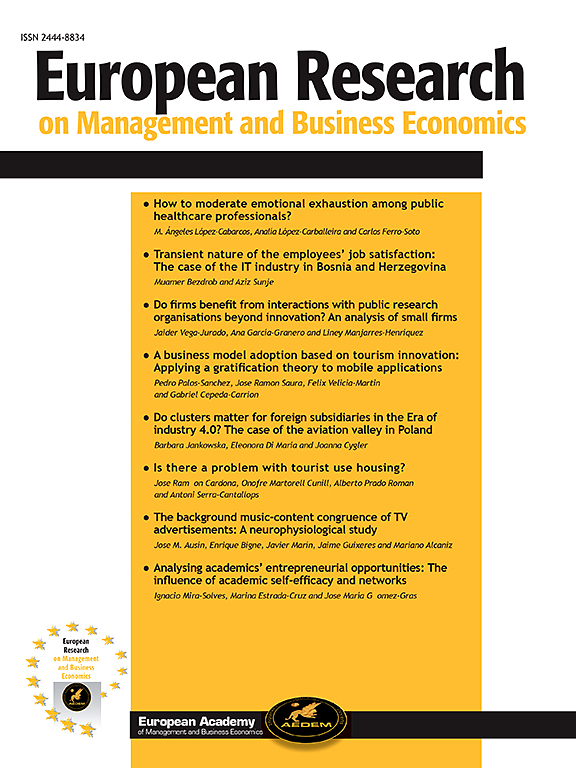Knowledge donation, hoarding, and hiding behaviors of high performers: Mediation role of deviant silence
IF 6.4
3区 管理学
Q1 BUSINESS
European Research on Management and Business Economics
Pub Date : 2025-03-28
DOI:10.1016/j.iedeen.2025.100276
引用次数: 0
Abstract
High performance punishment occurs when organizations distribute more work responsibilities to their best performers without offering supplementary compensation or recognition. The lack of appreciation through additional rewards creates burnout and employee resentment in such situations. Drawing on social exchange theory, this study examines the impact of high-performance punishment on high performers’ knowledge behaviors: knowledge donation, hoarding, and hiding. Besides, how deviant silence mediates these relationships. The sample data are collected from 534 employees of IT organizations across countries, and data are analyzed using the PLS-SEM technique with the Smartpls 4 software. The results show that high-performance punishment positively impacts knowledge hoarding and hiding behaviors but does not significantly impact knowledge donation. Deviant silence partly mediates the relationship between high-performance punishment and knowledge behaviors. It is deduced that although high-performance punishment promotes negative knowledge behaviors, but it does not affect willingness to donate knowledge until an employee indulges in deviant silence. The paper concludes with practical implications for organizations and submissions for future studies on managing high-performing employees.
高绩效者的知识捐赠、囤积与隐藏行为:异常沉默的中介作用
当组织将更多的工作职责分配给表现最好的员工,而不提供额外的补偿或认可时,就会出现高绩效惩罚。在这种情况下,通过额外的奖励缺乏感激会造成倦怠和员工怨恨。本文运用社会交换理论,探讨了绩效惩罚对高绩效员工知识捐赠、知识囤积和知识隐藏行为的影响。此外,异常的沉默如何调解这些关系。样本数据是从各国IT组织的534名员工中收集的,数据使用PLS-SEM技术和Smartpls 4软件进行分析。结果表明,绩效惩罚对知识囤积和隐藏行为有正向影响,对知识捐赠行为无显著影响。异常沉默在绩效惩罚与知识行为的关系中起部分中介作用。结果表明,绩效惩罚虽然促进了员工的负性知识行为,但对员工的知识捐赠意愿并无影响,直至员工陷入越轨沉默。本文总结了对组织的实际意义,并为未来管理高绩效员工的研究提供了建议。
本文章由计算机程序翻译,如有差异,请以英文原文为准。
求助全文
约1分钟内获得全文
求助全文
来源期刊
CiteScore
11.70
自引率
3.40%
发文量
30
审稿时长
50 weeks
期刊介绍:
European Research on Management and Business Economics (ERMBE) was born in 1995 as Investigaciones Europeas de Dirección y Economía de la Empresa (IEDEE). The journal is published by the European Academy of Management and Business Economics (AEDEM) under this new title since 2016, it was indexed in SCOPUS in 2012 and in Thomson Reuters Emerging Sources Citation Index in 2015. From the beginning, the aim of the Journal is to foster academic research by publishing original research articles that meet the highest analytical standards, and provide new insights that contribute and spread the business management knowledge

 求助内容:
求助内容: 应助结果提醒方式:
应助结果提醒方式:


